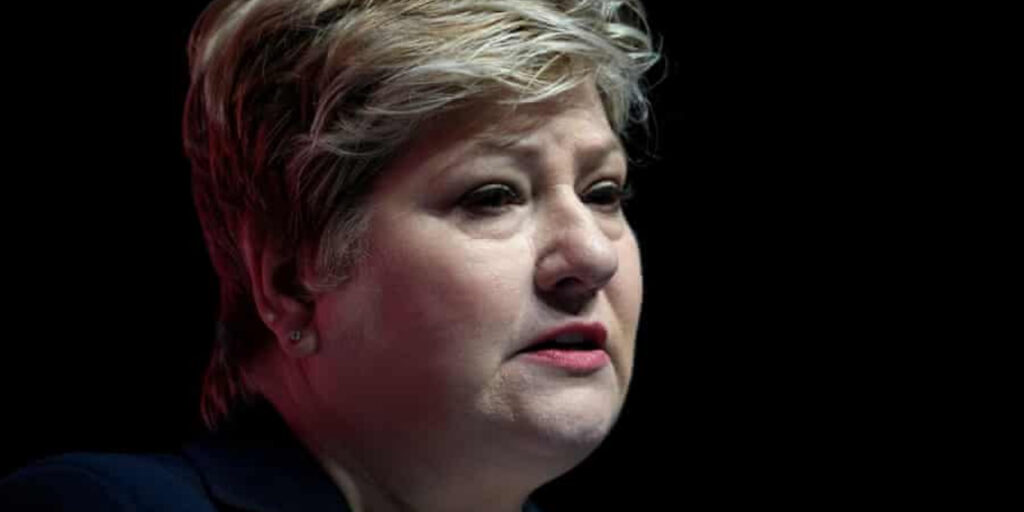The UK recognition of Palestinian state is facing renewed pressure as Labour MPs call on the Foreign Office to act, ahead of an international peace conference in June where French President Emmanuel Macron is expected to formally endorse Palestinian statehood.
France will co-chair the upcoming conference at the United Nations in New York alongside Saudi Arabia, with Macron stating that the summit must serve as a “decisive moment” in the Israeli-Palestinian conflict.
Labour MP Emily Thornberry, chair of the Foreign Affairs Select Committee, said the UK should act in coordination with France and other allies. “We need to do it with friends. We need to do it with the French. There are a lot of other countries sitting back and waiting,” she said. Thornberry warned that failure to act now could mean “there would be no Palestine left to recognise.”
Growing Political Momentum in the UK and Europe
Support for recognition is also gaining ground within the UK civil society. Chris Doyle, director of the Council for Arab-British Understanding (CAABU), backed immediate recognition, arguing that the UK and France—both permanent members of the UN Security Council—could send a strong diplomatic signal.
Many Labour MPs aligned with CAABU are increasingly vocal in their criticism of Israel’s actions in Gaza and the West Bank, particularly after two Labour MPs were recently barred from visiting the region. Tensions are also rising over Israel’s continued expansion and effective annexation of Palestinian territories.
UK Policy Faces Shift Under International Pressure
The current UK position remains that it will recognise Palestine at a moment of “maximum impact.” However, former Foreign Secretary David Cameron previously noted that recognition does not have to come at the end of a peace process, and that no external party—implicitly Israel—should have veto power over such a decision.
President Macron’s recent comments have intensified expectations, suggesting that the June conference could trigger a wave of international recognitions. “We must move toward recognition [of the Palestinian state], and so, in the coming months, we will,” Macron told France 5. He emphasised the need for a “collective dynamic” involving Gulf states, some of which still do not recognise Israel.
European and Gulf Diplomacy Challenges US-Israel Axis
Saudi Crown Prince Mohammed bin Salman has made clear that Saudi recognition of Israel hinges on a clear and irreversible path to Palestinian statehood. His stance follows repeated accusations that Israel is committing genocide in Gaza.
The Foreign Office may find it difficult to resist France’s initiative, especially given close personal ties between Labour leader Keir Starmer and Macron. Should the UK align with a broader European-Gulf diplomatic front, it could mark a historic policy shift.
Currently, 148 of the 193 UN member states recognise Palestine. Yet no Western G20 country, including the UK, France, Canada, Germany, or Italy, has done so.
Israeli Government Pushes Back Against Recognition
The Israeli government has responded harshly. Foreign Minister Gideon Sa’ar said unilateral recognition of a “fictional Palestinian state” would reward terrorism and bolster Hamas. However, Macron, in a response written in Hebrew on X (formerly Twitter), said France stands for peace, Israel’s security, and a Hamas-free Palestinian state.
He insisted that the political goal remains clear: the release of all hostages, a permanent ceasefire, increased humanitarian aid, and the implementation of a two-state solution. “There is no other way but a political solution,” he said.
US Signals Support for Israel Despite Rising Tensions
Amid the international debate, the US Senate confirmed Mike Huckabee as ambassador to Israel. Huckabee, a staunch pro-Israel figure, has referred to the West Bank by its biblical names and downplayed concerns over Palestinian displacement. His appointment reflects Washington’s continued support for Israeli policy, even as Europe pushes in a different direction.
As the June peace summit approaches, the UK’s position on Palestinian statehood may be tested like never before.


